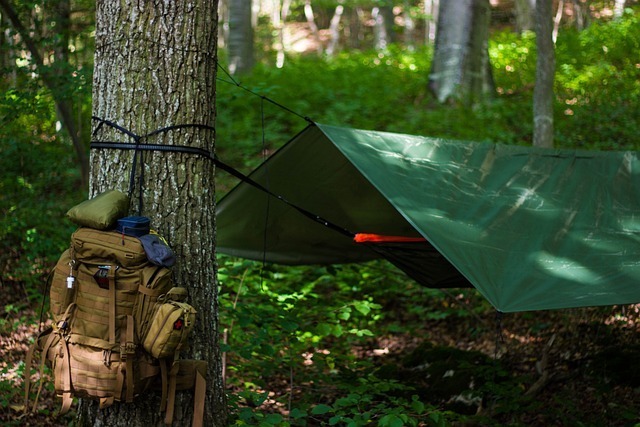Camping trips with friends can be an incredible way to bond, experience nature, and create lasting memories. However, surviving in the wild requires preparation, teamwork, and a bit of patience. In this guide, we’ll explore essential tips and strategies to ensure you not only survive in the wild but also have a safe and enjoyable camping trip without any friction among your friends. These tips will help you prepare for the unexpected, maintain harmony within the group, and make the most of your outdoor adventure.
1. Prepare Thoroughly Before You Go
Preparation is key to surviving in the wild. By planning ahead, you can prevent many common camping mishaps and ensure everyone is on the same page.
Preparation Tips:
- Research Your Destination: Understand the terrain, weather conditions, and potential hazards of your camping site. This knowledge will help you pack appropriately and plan activities.
- Create a Packing List: Make a comprehensive list of essential items, including shelter, food, water, clothing, first aid supplies, and navigation tools. Ensure everyone has the necessary gear.
- Delegate Responsibilities: Assign tasks such as cooking, setting up tents, and gathering firewood to different group members. Clear roles can help prevent confusion and ensure a smooth trip.
2. Pack Smart and Light
Packing the right items without overloading your backpack is crucial for comfort and mobility in the wild.
Packing Tips:
- Essentials Only: Focus on essential items such as a tent, sleeping bag, appropriate clothing, food, water purification tools, and a first aid kit. Avoid unnecessary gadgets.
- Layered Clothing: Pack lightweight, moisture-wicking clothing that can be layered. This helps you stay warm in cool temperatures and cool in warm weather.
- Compact and Multi-Use Gear: Choose compact, multi-use gear to save space and reduce weight. Items like a multi-tool, collapsible cookware, and lightweight camping stoves are excellent choices.
3. Prioritize Safety
Safety should always be a top priority when you’re trying to survive in the wild. Taking a few precautions can help you avoid potential dangers and ensure everyone’s well-being.
Safety Tips:
- First Aid Kit: Bring a well-stocked first aid kit and know how to use it. Include bandages, antiseptics, pain relievers, and any necessary prescription medications.
- Navigation Tools: Carry a map, compass, and GPS device. Make sure everyone knows how to use them to prevent getting lost.
- Wildlife Awareness: Research the local wildlife and understand how to avoid dangerous encounters. Store food securely and keep a safe distance from animals.
4. Manage Food and Water
Proper management of food and water is essential for surviving in the wild and maintaining group harmony.
Food and Water Tips:
- Water Purification: Bring water purification tablets, a portable filter, or a UV purifier. This ensures you have access to safe drinking water even if your supply runs out.
- Non-Perishable Foods: Pack lightweight, non-perishable foods such as dehydrated meals, trail mix, and energy bars. These are easy to prepare and carry.
- Group Cooking: Plan simple, one-pot meals that are easy to cook and clean up. Rotate cooking duties to share the workload and prevent burnout.
5. Foster Teamwork and Communication
Good teamwork and communication are vital for a successful camping trip. By fostering a collaborative spirit, you can ensure everyone enjoys the experience.
Teamwork Tips:
- Group Meetings: Hold regular group meetings to discuss plans, share updates, and address any concerns. This keeps everyone informed and involved.
- Respect Boundaries: Respect each other’s personal space and boundaries. Allow time for individual activities and downtime.
- Conflict Resolution: Address any conflicts calmly and constructively. Listen to each other’s perspectives and find compromises to maintain harmony.
6. Stay Calm and Adaptable
Flexibility and a positive attitude can make a huge difference when you’re trying to survive in the wild. Being able to adapt to changing circumstances helps prevent stress and ensures a more enjoyable trip.
Adaptability Tips:
- Embrace the Unexpected: Accept that not everything will go as planned. Embrace unexpected changes and view them as opportunities for new experiences.
- Stay Positive: Maintain a positive attitude, even when faced with challenges. A good mood is contagious and can help keep group morale high.
- Problem Solving: Work together to solve problems as they arise. Two heads are better than one, and collective brainstorming can lead to creative solutions.
7. Respect Nature
Respecting nature is crucial for both your safety and the preservation of the environment. Leave no trace and be mindful of your impact on the wild.
Environmental Tips:
- Leave No Trace: Follow the Leave No Trace principles, such as packing out all trash, minimizing campfire impact, and respecting wildlife.
- Sustainable Practices: Use biodegradable soap, avoid single-use plastics, and opt for reusable gear.
- Stay on Trails: Stick to marked trails to prevent damaging vegetation and disturbing wildlife habitats.
Surviving in the wild and having a successful camping trip with friends requires preparation, smart packing, prioritizing safety, managing food and water, fostering teamwork, staying adaptable, and respecting nature. By following these essential tips, you can ensure a safe, enjoyable, and memorable outdoor adventure. Remember, the goal is not just to survive, but to thrive and create lasting memories with your friends. Embrace the journey, support each other, and enjoy the beauty of the great outdoors.


